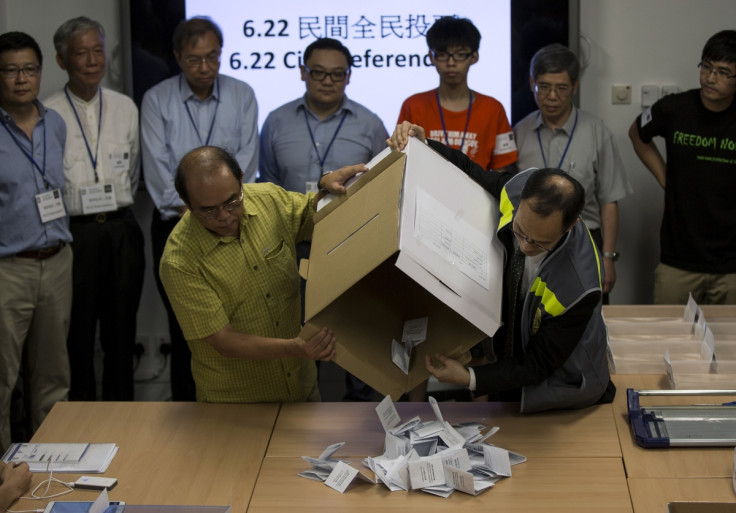China Worried as Hong Kong Braces for Mass Pro-Democracy Protest

Hong Kong is braced for its largest pro-democracy demonstration in more than a decade as almost 800,000 people voted for democratic reforms in an unofficial referendum.
Organisers of an annual protest march, marking the day the territory returned to China on July 1, 1997, said they expected several hundred thousands of people to take to the streets in opposition to Beijing's influence in choosing Hong Kong leaders.
"We can see that Beijing is eroding the autonomy of Hong Kong, and we want to show we don't fear central government oppression," said Johnson Yeung, convenor of the Civil Human Rights Front, one of the organisers of the march.
The rally comes days after pro-democracy activists who organised an online vote on ways to enhance Hong Kongers' say in the election of the territory's chief executive said that a total of 792,808 residents cast their ballots.
The referendum was slammed by China as "Illegal", while the Hong Kong government said it had no legal value.
Locals were asked to select what they felt was the best democratic method to appoint the chief executive, who is currently picked by an elite pro-Beijing committee.
China has pledged to allow Hong Kongers to vote a new leader from a shortlist of candidates, after current chief executive Leung Chun-ying concludes his term in 2017.
Pro-democracy activists, however, fear only candidates vetted and approved by Beijing will be allowed to run.
They say universal suffrage should be implemented in the city of seven million and opposition candidates should also be allowed to run.
Since the end of British rule, the July 1 march has been an occasion for residents to air complaints over a range of grievances.
Organisers said that this year the general unhappiness over stunted democratic development might result in a record turnout, higher than in 2003 when half a million people demonstrated against proposed anti-subversion laws.
"Hong Kong people are ready for true democracy without any pre-screening, that's the key message," said Edward Chin, leader of a group of banking and finance workers backing the Occupy Central with Love and Peace movement that organised the democracy referendum.
"This is a strong signal to Beijing that Hong Kong people can express their views in a non-violent way."
Democracy calls have caused concern in Beijing.
A central government "White Paper", claiming that Hong Kong's autonomy is subject to Beijing's authorisation and the leader must be patriotic to China, caused a backlash stirring more support for democratic movements.
Communist Party mouthpiece Global Times has warned Hong Kongers to stay away from the demonstration in an editorial.
"Hong Kong's radical opposition forces are trying with all means to build a war chariot and get as many Hong Kong citizens as possible onto this chariot by deception. Its crashing target is the central government and all the people of the country," the paper wrote.
"[Residents should] not board this war chariot."
© Copyright IBTimes 2025. All rights reserved.






















